Associate, Womble Bond Dickinson
Emiliano Aguirre is an associate in the firm’s Corporate and Securities Practice Group. Emiliano’s practice focuses on Federal Indian law and applying it in transactions when advising Tribal governments, Tribal entities, and non-Tribal entities pursuing business opportunities within Indian country. Emiliano is Laguna Pueblo and an enrolled member of the Navajo Nation.
Major Crimes Unit, Office of the Prosecutor, Navajo Nation
Kevin C Barnett is an Attorney working for the Navajo Nation Office of the Prosecutor since his second-to-last semester at the University of Kansas School of Law. He is Béésh Bich’ahii (German; Iron/Metal Hat Clan) born for Dagha’haalchi (Irish; Curly Red Moustache Clan). He speaks Béésh Bich’ahii Bizaad, his Muttersprache. A very proud Jayhawk, Barnett completed his Juris Doctorate and the Tribal Lawyer Certificate at KU Law, graduating in May of 2023. Prior to law school, Barnett was a Child Protective Services social worker for the Lac du Flambeau Band of Lake Superior Chippewa Indians for just under three years from 2017 to 2020. In that role he worked on everything from emergency response to ongoing case management to assisting the Tribal Court as a quasi-Guardian-ad-Litem in private custody matters.
Barnett completed his undergraduate career at The University of Wisconsin–Madison, earning an Honors B.A. in Psychology and History with Certificates in German, his heritage language, and American Indian Studies. Barnett attended high school at Center Grove High School in Greenwood, Indiana. In addition to having lived in Kansas, Wisconsin, and Indiana, Barnett grew up in Rhode Island during his formative years and was born in Virginia, outside of the District of Columbia.
At the Navajo Nation Office of the Prosecutor, Barnett serves as the Team Lead for the Major Crimes Unit and as the Extradition Attorney for the Navajo Nation. Since August 2024, he has served as the Guest (Acting) District Prosecutor for the Kayenta District, which stands as one of the busiest districts for criminal cases on the Navajo Nation.
Barnett’s interest in how rape is defined in the law began during his 3L year at the University of Kansas when he worked with Sarah Deer, one of the key architects of the Tribal Law and Order Act and the predecessor to Special Tribal Criminal Jurisdiction, namely Special Domestic Violence Criminal Jurisdiction. Professor Deer approached Barnett because of his work at the Navajo Nation Chief Prosecutor’s Office in Summer 2022, where he helped author a comprehensive analysis of the types of cases declined for federal prosecution, a large plurality of which involve sex crimes against Diné children. Professor Deer assigned Barnett to review the rape statutes of over 100 tribal nations and classify them as reflecting a bona fide meaning of consent (true non-consent), contradictory non-consent (where some version of the term “non-consensual” is defined as forcible rape rather than a simple literal lack of consent), and force-based rape laws.
Barnett took this knowledge from working with Professor Deer to discuss revising the Nation’s rape law with the Chief Prosecutor. While this updated rape definition was initially expected to be part of the failed 2022 Title 17 amendments, it ultimately came to fruition in the landmark Victim’s Rights Act of 2023. This updated rape definition defines “without consent” as what it should have always meant: sexual acts and sexual contact without the consent of the victim. In other words, rape is rape, even if the victim is never threatened, struck, or otherwise harmed in a non-sexual way.
Barnett has previously provided his “Navajo Rape Law and the Legal Meaning of Affirmative Consent on Diné Bikéyah” presentation to the Utah Navajo Health Systems, Inc. Spring Sexual Assault Prevention Conference in Blanding, Utah at Utah State University. Barnett hopes that those who attend this CLE will come to appreciate the need to ensure rape laws, which he defines broadly to include all forms of sexual predation against Navajo people, reflect Navajo Fundamental Law and principles flowing therefrom, such as the sacredness of words and the absolute right of Navajo children to be free from all forms of abuse. Barnett intends for this presentation to be one that has every likelihood to make the participant uncomfortable. This flows from his view that, unless we can confront the disruptive forces (naayee) harming the Navajo people, especially Navajo children, then we cannot expect to work toward a safer future for all who live on, or originate from, Dinétah.
General Counsel at Fort McDowell Yavapai Nation
Diandra D. Benally serves as General Counsel for the Fort McDowell Yavapai Nation, where she has been instrumental in advancing the Nation’s gaming compact negotiations and leading key economic development initiatives that have delivered significant benefits to the Fort McDowell community. Her extensive legal expertise encompasses civil litigation, Native American law, federal contracting, healthcare, government affairs, gaming, economic development, water law, and natural resources law.
Diandra is a co-founder of the Arizona Collaborative Bar and has held leadership positions, including President of the National Native American Bar Association, the Native American Bar Association of Arizona, and the Navajo Nation Bar Association. She currently serves on the American Bar Association’s Commission on Women in the Profession, where she co-chairs the Mental Wellness of Women in the Law Committee and Advisory Council.
Diandra holds a Doctorate in Education (Ed.D.), with research centered on the experiences of Native American women attorneys within the legal profession. In recognition of her outstanding contributions to advancing diversity, equity, and inclusion in the law, she received the American Bar Association’s prestigious Spirit of Excellence Award in 2023.
Deputy Prosecutor for the Salt River Pima-Maricopa Indian Community.
Chris Channell is a licensed attorney in the State of Arizona and a Deputy Prosecutor for the Salt River Pima-Maricopa Indian Community. Mr. Channell received his Juris Doctorate and Certificate of Indian Law in 2018 from the Sandra Day O’Connor College of Law at Arizona State University.
Currently, Mr. Channell sits on the Native American Bar Association of Arizona’s Board of Directors and is the Association’s President-Elect for the coming year. He is a graduate of the State Bar of Arizona’s Bar Leadership Institute and was recently appointed to the State Bar of Arizona’s Criminal Practice and Procedure Committee (2025-2028).
Chris Channell’s commitment to community service is evident in his role as a mentor. As an enrolled citizen of the Oglala Sioux Tribe of Pine Ridge, South Dakota, he has invariably been dedicated to supporting his community. This dedication was further demonstrated during his time at the University of Nebraska at Omaha, where he served as a mentor in the Sacred Hoop Program, a program he played a key role in establishing.
Before law school, Mr. Channell worked in construction in Omaha, Nebraska. He worked his way from an apprentice carpenter to a project superintendent for both union and non-union companies, gaining vast knowledge of both.
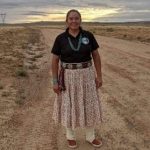 Rosiene Charley
Rosiene Charley
Bi-Cultural Training Manager, Navajo Nation Peacemaking Program Administration
My clans are One Who Walks Around you, born for the Red House clan, my maternal grandparents clans are Zuni Edgewater, and my paternal grandparents are of the Bitter Water clan. I reside in Tonalea, AZ where I was raised by my loving mother and maternal grandparents.
My prior job experience began at the Navajo Department of Corrections working with both adults and youth and later I worked with the Coconino County Sheriff’s Office – Detention Facility. I received my credentials for Basic Adult & Juvenile Detention Training through the Federal Law Enforcement Academy in Artesia, New Mexico, and the Department of Interior University – Denver, Colorado. Which led to a successful 15-year career in the Department of Corrections field.
On October 31, 2011, I began a new career path with the Navajo Nation Judicial District – Tuba City District Court as a Court Clerk. In 2012, I started working with the Navajo Nation Probation Parole Services and the Navajo Nation Peacemaking Program as an Office Technician. This experience sparked my interest in Dine’ cultural teachings shared through the Peacemaking Program, and in 2015 I began work with the Navajo Nation Peacemaking Program as a Traditional Program Specialist. I brought the rich cultural teachings of my upbringing, life experiences, interpersonal skills, bi-lingual (Navajo & English) to name some of my skills in providing exceptional and successful Peacemaking sessions, Life Value Engagements, traditional presentations, and other Peacemaking related work. I have collaborated with Navajo Nation Executive, Legislative and Judicial Branch, Coconino County Attorney’s Office, local schools, and other agencies and resources within the community and neighboring border towns; through providing Peacemaking services. On December 2, 2025, I began my journey as the Bi-Cultural Training Manager for the Peacemaking Program. My goal is to continue to provide empathy and kinship through the services that I provide to the local community, colleagues, and organizations to create harmony and healing for individuals and families.
Associate, Zwillinger Wulkan
DesiRae Deschine is Navajo and Standing Rock Sioux and was raised in Window Rock, Arizona. DesiRae graduated from the Sandra Day O’Connor College of Law at Arizona State University in 2019 with her Juris Doctorate and a certificate in Federal Indian Law. DesiRae also holds a master’s degree in social work and a bachelor’s of arts in psychology.
DesiRae most recently was an Assistant General Counsel with the Gila River Indian Community, and she represented the Community in tribal court on various civil matters and provided legal advice on compliance and legislative issues. DesiRae’s legal experience includes employment with the Navajo Nation Department of Justice as an attorney, the Navajo Nation Washington Office as a Government & Legislative Affairs Associate, and Cochise County Attorney’s Office.
Assistant Dean + Librarian, Law Library, ASU Law
Beth DiFelice is Assistant Dean, Director of the Law Library, and Professor of Practice at the Sandra Day O’Connor College of Law at Arizona State University. She teaches Advanced Legal Research, Indian Legal Research, and International Legal Research, equipping students with the skills to navigate complex legal systems and tribal law frameworks. Beth earned her B.A. from Centenary College and both her J.D. and M.L.S. from the University of Washington. Her career spans law librarianship, legal practice, and national leadership in legal research education, with a deep commitment to supporting Indigenous legal scholarship and access to justice.
Principal Shareholder, Greenberg Traurig, LLP
Troy Eid (rhymes with “side”) served as the 40th U.S. Attorney for Colorado, appointed by George W. Bush. He is one of the top experts on public safety on Native American and Alaska Native tribal lands and served as the Chairman of the bi-partisan Indian Law and Order Commission under President Barack Obama. He served as President of the Navajo Nation Bar Association from 2018-22. A competitive ultramarathoner, Troy won the Grand Master’s Championship in the annual 2025 Race Across Scotland, running from the Irish Sea to the North Sea (220 miles) in 93 hours.
Associate Attorney, Zwillinger Wulkan
Shandiin is a proud member of the Navajo Nation from Monument Valley, Utah, and is dedicated to serving Indigenous communities through her legal career.
Shandiin graduated from the Sandra Day O’Connor College of Law in 2025 with her Juris Doctorate and a certificate in Federal Indian Law. During law school, Shandiin served as President of the Native American Law Students Association, Co-Leader of the Native Vote Election Protection Project, Associate Editor of the Law Journal for Social Justice, and an American Bar Association Democracy Fellow.
She externed with the Navajo Nation Department of Justice, the U.S. District Court for Arizona, and the Fort McDowell Yavapai Nation’s Office of General Counsel, gaining firsthand experience in tribal, federal, and judicial legal systems.
Prior to law school, Shandiin co-founded the Navajo & Hopi Families COVID-19 Relief Fund and served as Director of the Tse Bii Ndzisgaii Community Center, where she worked directly with community members to address urgent needs and long-term development.
Shandiin earned a B.A. in Public Policy with a minor in Cultural Anthropology from Duke University, where she became the university’s first Native American Udall Scholar and was recognized with multiple leadership awards.
Associate Dean of Academic Affairs, Distinguished Endowed Professorship in Legal Method, ASU Law
A professor at the College of Law since 2001, Tamara Herrera teaches a variety of courses, including Legal Writing and Method, Legal Advocacy, Writing for Law Practice, Indian Legal Research, and first-year Property. Her scholarly interests include legislative drafting and tribal law, as well as legal writing pedagogy.
Professor Herrera is a member of the Association of Legal Writing Directors and the Legal Writing Institute. From 2016-2020, she served as the Secretary of the Association of Legal Writing Directors. She is a past chair of the Environmental and Natural Resources Section of the Maricopa County Bar and a member of the State Bar of Arizona, the Federal District Court for the District of Arizona, and the United States Supreme Court. She writes a monthly column about legal writing for the Maricopa County Bar’s publication, Maricopa Lawyer. Following her graduation with distinction from the University of Nebraska School of Law, Professor Herrera practiced law at the firm of Ryley, Carlock & Applewhite in Phoenix. She performed complex legal research in water and Indian law; drafted proposed rules and legislation relating to natural resources issues in Arizona; and represented clients in both state and federal courts.
In addition to her law degree, Professor Herrera has a Masters Degree in Information and Library Science from the University of Arizona.
Attorney, Drummond Woodsum
Brian Lewis’ practice is devoted to tribal economic development. He represents tribes, governmental subdivisions, tribal enterprises, tribal member owned businesses, and non-tribal private and public corporations that collaborate with tribes and tribal enterprises. Mr. Lewis advises and represents clients in across the spectrum of commercial, corporate, financial, and governmental matters, including in energy, finance, real estate, regulatory and compliance, alternative dispute resolution, trial, and appellate litigation matters. Much of his practice concerns resolving complex jurisdictional issues. Mr. Lewis has extensive experience in performing virtually all aspects of sensitive, high-level commercial and financial agreements, securing regulatory and political authorizations and approvals from tribal, state, and federal bodies necessary to secure rights and protectable interests for the development of projects and performance of commercial operations in and around Indian Country.
Assistant Dean of Institutional Progress & Executive Director of Indian Legal Program, ASU Law
Rosier is the Assistant Dean of Institutional Progress and the Executive Director of Indian Legal Program (ILP) at the Sandra Day O’Connor College of Law at Arizona State University. She is an enrolled member of the Comanche Nation of Oklahoma. In this role Rosier leads the ILP’s recruitment and retention efforts and is in charge of the ILP’s development and grant work. Rosier served as Director of the ILP from 2000-2011 and returned as Executive Director in 2014. During her three-year absence from the ILP Rosier served as an Assistant General Counsel for the Fort McDowell Yavapai Nation. Prior to joining ASU, she worked as a tribal prosecutor for the Gila River Indian Community. Rosier received her J.D. from the University of Utah in 1998 and a BA from Capital University in 1993.
Senior Partner, Setter Roche Smith & Shellenberger LLP
Keith C. Smith leads the firm’s Tribal & Federal Indian law practice, and he practices family law as well. Keith has been practicing Tribal and Federal Indian law since he received his juris doctorate degree from the Arizona State University, Sandra Day O’Connor College of Law in 1997. As such, his experience in Tribal and Federal Indian law is unparalleled to many working in the field. In addition to practicing Tribal and Federal Indian law, Keith’s practice also includes domestic relations (family law), land issues, probate and estate planning matters, business law, employment matters, general civil litigation, and minor criminal offenses. Mr. Smith currently represents the Navajo Nation Gaming Enterprise for employment matters, and several individual clients for various matters ranging from family law, employment law and businesses for their needs. Keith also represents native non-profits such as, American Indian Science and Engineering Society (AISES) and the First Nation Development Institute.
Prior to establishing the firm, Mr. Smith held a position as an adjunct professor of law at the University of Denver Sturm College of Law, where he taught Federal Indian Law, Family Law, and Contracts, and as an adjunct professor at the University of Colorado at Boulder. Keith continues to present as a guest lecturer and speaker at numerous venues, such as the University of Colorado, University of Denver, Arizona State University, Metro State College, Colorado State University, American Indian College, Dine College, National Indian Education Association, National Conference, Indigenous Bar Association, British Columbia, and many others.
Prior to serving as a professor, Keith served as in-house counsel and senior administration director for the American Indian College Fund (“AICF”). While serving as in-house counsel, Keith advised the AICF on all legal matters facing the AICF and was instrumental in the creation and establishment of employee and management procedures. He also provided contract supervision for construction projects for 31 tribal colleges and universities in the United States – an approximate $31 million project. Each year, Keith assisted the AICF in providing counsel for each of the colleges belonging to the American Indian Higher Education Consortium (“AIHEC”), during legislative hearings with the U.S. Congress, Washington, D.C. He later accepted a position as Director of the Indian Legal Program at the Arizona State University College of Law, where he worked to further develop the law school’s Federal Indian Law curriculum and helped nurture and maintain many relationships with American Indian tribal nations. In addition, he managed the school’s recruitment efforts of enrolling native law students and was an active member of law school’s admission’s committee.
Immediately following law school, Keith served as a staff attorney for the Navajo Nation’s DNA Peoples’ Legal Services firm in Farmington, New Mexico. While at DNA Peoples’ Legal Service, he worked in the areas of family law, including the Indian Child Welfare Act, contracts, consumer law and landlord/tenant; he worked with issues regarding the Navajo Housing Authority, representing tenants.
Keith received his Bachelor of Arts undergraduate degree from the University of Colorado at Boulder. While in law school, Keith clerked for the Chief Justice of the Salt River Pima-Maricopa Indian Community where he drafted and wrote the Community’s Domestic Violence Code. The Code was enacted in 1997. He also authored, “Best Practices for Defending Tribal Membership Cases,” in 2013. He also received the distinction of being named a Chief Manuelito Scholar throughout college and law school.
Assistant Director of the Indian Legal Program, ASU Law
Kristen Talbert is the Assistant Director of the Indian Legal Program at Arizona State University. An enrolled member of the Sisseton-Wahpeton Oyate, Kristen brings over fifteen years of experience in nonprofit leadership, case management, data collection, teaching, and program development.
Her career has focused on advancing the Indian Child Welfare Act and connecting American Indian families with resources that support long-term success. She has served as the St. Paul Urban Representative for the Indian Child Welfare Advisory Council at the Minnesota Department of Human Services and as a member of the Indian Education Advisory Council for the Arizona Department of Education. Kristen is currently a premier academic coach for the Native Forward Rising Native Graduates Program.
She earned her MBA with an emphasis in leadership and entrepreneurship from ASU’s W.P. Carey School of Business, an MA in K–12 Education with a focus on Indigenous language immersion from the University of St. Thomas, and a BA in American Indian Studies—Dakota Language Track from the University of Minnesota–Twin Cities.
In 2023, Kristen was honored with the NCAIED 40 Under 40 award for her leadership and impact in Native communities.
NIL Administrator, Sun Devil Athletics
Zach Thornton is the Name, Image, and Likeness (NIL) Manager for Sun Devil Athletics, where he leads the strategy, education, and execution of NIL opportunities for student-athletes across all 26 sports. In this role, he builds partnerships with brands, donors, alumni, and the community while ensuring full compliance with NCAA, Big 12, and institutional policies.
Before joining SDA, Zach managed NIL operations at two different NIL Collectives, the Sun Angel Collective (ASU), and the Cougar Collective (Washington State University), where he helped launch large-scale fundraising campaigns, brand activations, and athlete-driven initiatives that directly supported recruiting, retention, and program success.
Originally from Seattle, Washington and a graduate of Washington State University.
Partner, Zwillinger Wulkan
Javier has practiced in both federal and state courts, and has deep experience in complex business litigation, patent litigation and employment litigation, including wage and hour class actions.
His comprehensive knowledge of source code analysis allows him to work extensively with in-house engineers to understand his client’s technology needs and devise thorough non-infringement strategies. Before attending law school, Javier worked as a software and web developer.
In a putative class action in California district court, Javier successfully obtained a summary judgement dismissal of multiple claims under the California Labor Code, the California Private Attorneys General Act and the Fair Labor Standards Act.
Javier represented a major social networking company in California against patent infringement claims brought by a non-practicing entity related to web-based mail. He obtained a dismissal of all claims.
He also represented a major social networking company in Texas on infringement claims related to an online gaming patent. He obtained a dismissal of all claims. On a separate occasion, he represented the company in Texas once again on patent infringement claims related to online searching. Here, he worked closely with in-house engineers and outside consultants to develop a non-infringement theory, and the plaintiff stipulated to non-infringement.
In a wage and hour action in California superior court, Javier successfully enforced an arbitration agreement, obtaining a stay on all claims pending arbitration.
In a putative wage and hour class action originally filed in California superior court, which was removed to federal district court pursuant to the Class Action Fairness Act (CAFA), Javier defeated a motion to demand the case back to superior court.
Javier led the defense team in a California arbitration, where multiple claims were asserted under the California Labor Code. The arbitrator issued an opinion rejecting the plaintiff’s claims in total.
Associate, Womble Bond Dickinson
Wyatt Williams is an associate in Womble Bond Dickinson’s Corporate, Gaming, and Tribal Law and Policy Groups. His practice focuses on transactional and regulatory matters in the gaming and hospitality industries. Wyatt is a member of the Walker River Paiute Tribe.

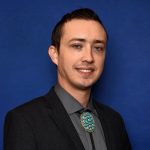
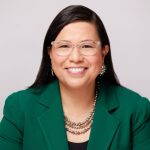
 Chris Channell
Chris Channell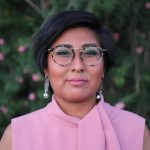


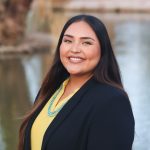





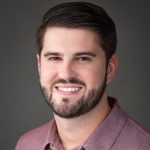 Zach Thornton
Zach Thornton

